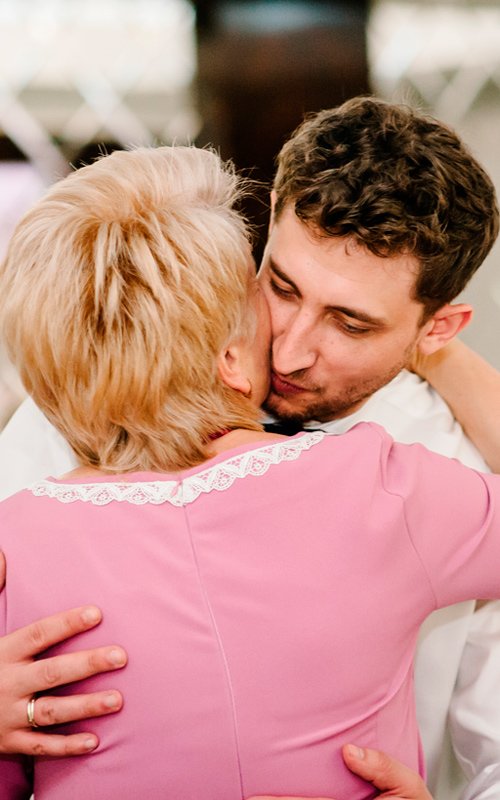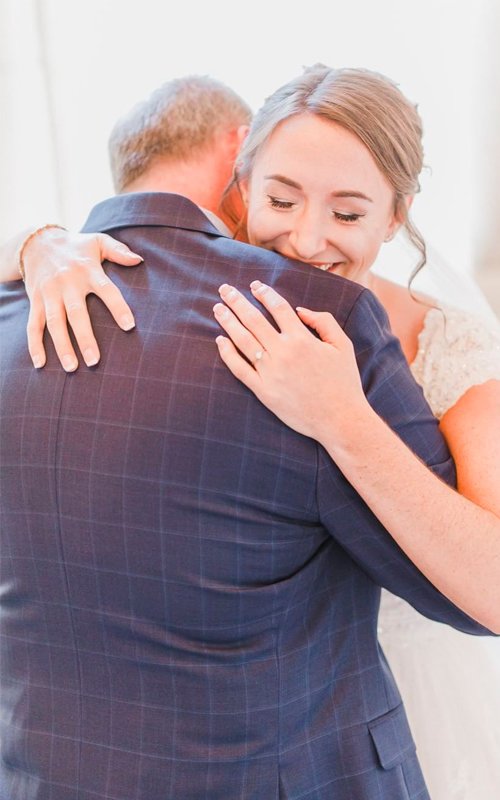One of the most exciting events you can attend is Indian weddings. Everything about them is pure class! You get to enjoy the display of rich culture, extravagant jewelry, exotic foods, and flamboyant clothes among others. We won’t forget to mention that the couples are also drop-dead gorgeous! However, the highlight of the show is the Indian wedding songs. They are melodious and sand in heartfelt wedding songs in Indian styles that stay with you forever. There is music for everything, from Indian wedding songs for the bride to the entrance, cutting of the cake, and more. So if you want to compile the best Indian wedding songs for your big day, check out our curated list.
ADVERTISEMENT
Indian Wedding Songs To Walk Down the Aisle
Walking down the aisle is the beginning of a couple’s journey to forever. Only the best Indian wedding entrance songs will do like the ones below.
- It’s life- Niraj Chag
Sang by the London-based musician, Niraj Chag, this Indian wedding song is meaningful yet appealing. It is also unconventional with a crisp traditional twist that reaches the soul. Get your tissues and handkerchiefs as the bride walks down the aisle because there won’t be any dry eyes among the audience. - Deewani Mastani by Shreya Ghoshal
Deewani by Shreya Ghoshal is a perfectly revised version of Bajirao Mastani’s hit single. While both renditions are exceptional, Shreya’s version is more romantic and exudes the unconventional nature of love. The best application of this song is at a nature-inspired or romantic-themed wedding. - Mere Humsafar from All is Well
We all know of the 2015 classic Mere Humsafar from All is Well. However, Indian wedding songs in 2016 were nowhere without the modern version of this evergreen beat. There are neither similarities nor replication, but the flavor and essence remain the same. If you want to bring the best out of your bridesmaids and flower girls, this is their song. - Din Shagna Da : Phillauri
The bride says that it is her day of marriage and she’s ready to celebrate. She found her love and sweetheart so there’s plenty to be excited about. The best part of this soulful and slow-burn song is the parade of sonorous voices. From Dijit Dosanjh to Anushka Sharma, Din Shagna Da by Jasleen Royal is the perfect song to walk down the aisle. - Laal Ishq: Ram Leela
A bride is the belle of the ball and sight for sore eyes on her big day. So she deserves all the attention while walking down the aisle. This unconventional and subtle song draws in the crowd, sets the scene, and puts all eyes on the bride as she takes her steps.
Indian Wedding Dance Songs
Indian wedding dance songs will get everyone on their feet until the night passes. See some of the best renditions for you.
- Sweety tera drama: Bareilly ki barfi
This is one of the best Indian wedding songs for bride-to-boogie. It is upbeat and lights a match on the dancefloor. Its appealing lyrics and energetic instrumentals ensure that no one remains sitting. - Bom diggi diggi: Sonu ke titu ki sweety
If you want a groove to the fullest or a two-on-the-floor type of dance, bom diggi diggi is your song. The best part is that the lyrics are appropriate for children and even the elderly. This song is well balanced and you’re sure to have fun without offending any sensibilities. - Pehli Baar: Dil Dhadkne Do
If you want wedding songs with Indian lyrics that speak to you, choose Pehli Baar: Dil Dhadkne Do. It is a romantic rendition that takes you down memory lane, harvesting the good times. After all, you’ve done to make your wedding a reality, you deserve a great time with your spouse. - Dil Ka telephone: Dream Girl
Give it up for one of the top Indian wedding songs in 2022. Romance, tonality, sweet melody, and meaning all check in on this beat. This is the perfect song for a couple’s first dance because of its cheesy and upbeat lyrics. - Mumbai Dilli Di Kudiyan- Student of the year 2
If you’ve got the moves and energy for a good time on the dance floor, play this song. It cuts across all age groups but the youngins at your wedding will get all the fun. This song is worth a spot on your playlist.
Indian Wedding Cake Cutting Songs
Cutting the wedding cake is one of the most emotional yet fun times at the wedding. So, see these wedding songs’ Indian lyrics to tide you through.
- Teri Ore From Singh is King
Teri Ore is a track from the hit movie titled Singh is King. It also has romantic and meaningful lyrics that are as perfect as the background rendition while cutting the cake. What else does a couple need for one of their ultimate moments? Movie buffs will not skip this song from their playlist. - My Dil from Salaam Namasthe
My Dil is a slow-burn romantic song that consistently tours weddings worldwide. It isn’t relenting anytime soon because even though it is the most played, it remains evergreen! This hit from Salaam Namasthe is idyllic for cake cutting with lyrics that set the tone for a forever journey. It is special, romantic, and perfect. - Mein Rang Sharbaton ka from Phata poster nikla hero
This is one of the best Indian wedding songs for cutting the cake all day, every day. It will resonate more among lovers of Atif Aslam because the lyrics excite. Go for it and make your cake cutting unforgettable. - Zaalima from Raaes
We maintain that Arijit Singh is one voice you want to hear at your wedding. When it comes to contemporary love songs, he’s the king of Bollywood. He has something for every wedding moment. Zaalima from RaaesI is a cheesy love song that pulls at your heartstrings as you cut the cake. - Kaabil hoon from Kaabil
Kaabil hoon from Kaabil is a replication of the original Sang by modern musicians. However, the essence remains making it one of the most sought-after-cake-cutting songs for Indian weddings.
Indian Wedding Reception Entrance Songs
Indian wedding reception entrance songs are for the couple and guests. These songs will get the entrance groove on for everyone.
- Tere Sang Yaara: Rustom
If you want to land a whimsical reception entrance, this is the song for you and the party. This song tells your partner how you feel about them and it’s the perfect start to a lifetime together. - Makhna from Drive
Jacqueline Fernandez brought her A-game to this song with romantic and cheesy lyrics. This song sets a calming ambiance that turns the place magical. - Dil Ibadat from Tum Mile
Taken from the video Tum Mile, this song is the ultimate reception entry number that unleashes the right vibe. It assures you a grand entry and the awe of all your guests. - Mere Bina from Crook
If you are looking for a soulful song that is relatable and romantic, Mere Bina from Crook is the perfect song. There won’t be a dry eye because this song is heartwarming. - Raabta from Agent Vinod
After the joining comes the celebration and this is the best song to announce your news. Make a grand entrance with this song and see everyone rise to the occasion.
Popular Indian Wedding Songs
These are some of the most popular Indian wedding songs of all time. Whether for entrance, cake cutting, or even vows, the songs are perfect.
- Sauda khara khara from Good news
This song is a must-have track for Indian wedding songs 2022. It is an upbeat song that gets everyone dancing and excited. - Makhna from Drive
If you want to host an after-party with merit, Drive-by Makhna is your perfect hit. It sets the mood on a high tempo and removes fatigue. - O Saki Saki from Batla house
If you want to register your presence with the gang, throw some moves to this hit song. It has appropriate lyrics that resonate with everyone. - Don’t Be Shy from Bala
This is a song that brings everyone out of their shell. It says don’t be Shy, so get on the dance floor and make it rain with your moves.
Indian Wedding Reception Songs
The wedding reception is a time for fun and romance. Here are songs to make it worth your while.
- Tum jo aaye: Bollywood movie Once upon a time in Mumbai
This song from the Bollywood hit title once upon a time in Mumbai is soulful and sweet to the ears. This is one of the best Indian wedding songs that couples can waltz to. It also cocoons you and your lover for always. - Surili Akhiyon Wali from Veer
This rendition from Veer is one of Shreya Ghoshal’s and Fateh Ali Khan’s best songs. It is the ultimate romantic number for every couple that wants a whimsical experience at their reception. - Afreen Afreen- Coke Studio
If you ever heard this song on Coke Studio, you would know why it is a winner at every wedding. This song steals the show always and is always played. Now we know why the winners are deserving. - Raabta- Agent Vinod
The instrumentals and lyrics are the combination winners of this song. It is sweet, soulful, pleasing, and heartwarming at all times. - Lae Dooba- Aiyaary
Here’s one of the best Indian wedding reception songs that tell your spouse how you feel. The extent of your love is better expressed and this song makes sure of that.
Best Bollywood Songs
These Bollywood Songs are great Indian wedding entrance songs, for cake cutting, and more. See some ideas below.
- Shaam Shaandar-Shaandar
Shaam Shaandar from Shaandar is a peppy song for movie lovers as they make an entrance. You would remember this day forever. - Kudi Nu Nachne De
This is an Angrezi Medium track that remains one of the best Indian wedding songs. If you want to tell the world how much you love your partner, this is your song. - Tareefan
For your entrance and even honeymoon, Tareefan never goes out of style. This is an evergreen song because it complements your wife always. Women love it when they’re complemented, so stay on her good side. - Kala Chashma
Play this song from Baar Baar Dekho for the entrance, reception, and after-party. This song maintains the energy all through. - Pehli Baar
If you want the perfect summary of your love journey, this romantic song from Dil Dhadakne Do will do the job. It is a perfect hit for your first and last dance.
Wedding songs of Indian origin are sonorous and romantic with a lot of feelings. We have curated a list of the best Indian wedding songs that will serve you from the ceremony to the reception and after-party. Check them out and compile your playlist from these hits.
ADVERTISEMENT

























































